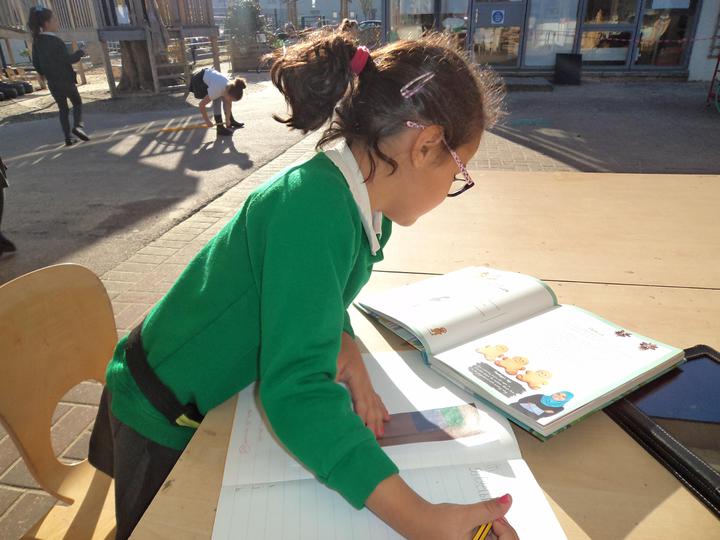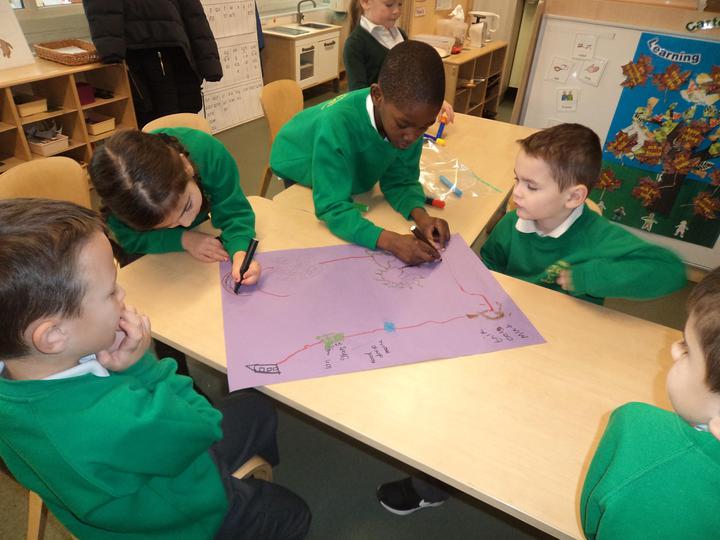English


English Rationale
At Carterhatch Infant School we aim to enable children to develop as confident and capable communicators. Language allows us to communicate our feelings, thoughts and experiences. We strive to enable our children to interact, discuss and communicate effectively.
At Carterhatch Infant School, we aim to promote an enthusiasm for reading as soon as children enter the school. A love of books is developed through a range of exciting and stimulating texts. Children are also encouraged to read captions and labels in their environment.
In the Early Years Foundation Stage and Key Stage 1 we use the ‘Little Wandle Letters and Sounds Revised’ phonics programme. Children take home decodable books linked to their current phonics phase. This programme builds on children's speaking and listening skills and prepares them for learning to read by developing their phonic knowledge.
During the Reception Year children read individually and, as the year progresses, read in small groups when the child is assessed as ready to start our Daily Supported Reading Programme. By strategically committing resources and staff from across the school to run the DSR programme in Reception and Year 1, the programme ensures that all children have daily opportunities to read:
- independently
- in small groups
- at their ability level
- with a trained adult.
In turn, this creates a more equitable range of achievement as children move into Year 2. It also allows us to identify children needing further support.
Once the pupils have learned to read independently, they move onto the school’s SPIQE programme in Year 2 which is based on the strategies of Reciprocal Teaching (Lori Oczkus, Reciprocal Teaching at Work). Children continue to work on deepening their understanding of stories and texts through our daily guided reading sessions. In these sessions we teach and model the following reading strategies:
- Summarising (S)
- Predicting (P)
- Clarifying/Investigating (I)
- Questioning (Q)
- Visualising (E for Eyes)
We also encourage children to practise: inference, making connections and evaluating.
The groups read books or short sections of texts independently and then discuss them building their understanding through dialogue. We ensure all children read widely across fiction and non-fiction texts.
At Carterhatch Infant School in Key Stage 1, we teach English through the Power of Reading Programme. Children engage with high quality picture books, poetry and non-fiction texts through a wide range of teaching approaches. The carefully chosen texts are all part of the Centre for Literacy in Primary Education Core Book List.
Children are immersed into the text through music, art, drama, discussion and role-play. Other approaches include responding to illustrations, ‘Book Talk’, story mapping and book making.
Spelling - we teach spelling patterns and spellings of common exception words which children are expected to practise at home. Spellings are sent home during Year 1 and on a weekly basis in Year 2.
Handwriting - At Carterhatch Infant School, we follow the PenPals handwriting scheme. In Reception, children are introduced to mnemonics that help them learn the correct letter formations.
Grammar - We teach grammar through a rich reading and writing curriculum. We use high quality texts to exemplify language in use and to introduce as well as consolidate terminology in context. Our children absorb grammar use through reading and discussing texts. We provide authentic purposes for writing including fiction and non-fiction and encourage children to explore creative writing techniques.
